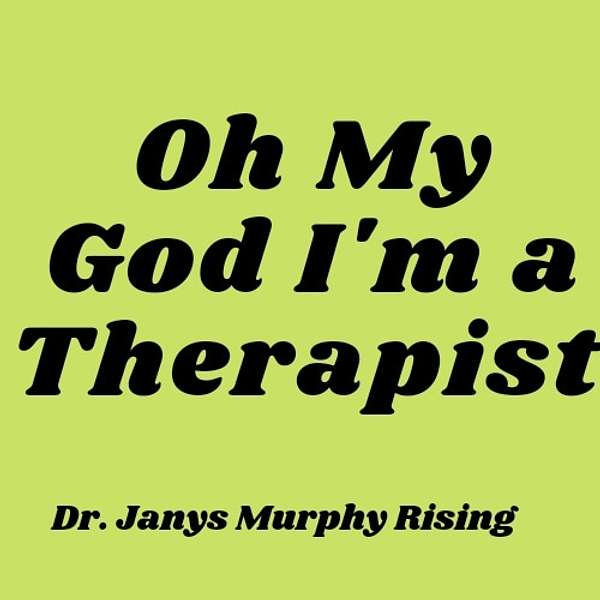
Oh My God I'm a Therapist
Oh My God I'm a Therapist
Body Centered Practice Part Seven- Putting on the brakes
This episode is part seven of a nine-part series of body-centered practices. Dr. Janys originally recorded this as part of a crisis counseling course. Their students kept asking to download it so here it is for anyone and everyone. Body-centered practices can be helpful in gaining resources for calming the nervous system. If you are looking for brief practices for personal use, resourcing for counseling, or for being a counselor- this will be of use to you! Transcript included.
*Content warning- this practice does involve imagining being in a car. If you have experienced car trauma I would suggest skipping this episode or talking with your own therapist about how you might modify this practice to support your healing.
In addition to being a therapist and a professor, Dr. Janys is certified as a yoga instructor and yoga therapist. In addition to using her own experience leading guided body-centered practices, they referenced the readings below to create the body-centered practices series:
Levine, P. (2008). Healing Trauma: A Pioneering Program for Restoring the Wisdom of Your Body. Sounds True.
Menakem, R. (2017). My Grandmother’s Hands: Racialized Trauma and Our Pathway to Mending Our Hearts and Bodies. Central Recovery Press.
Rothschild, B. (2000). The Body Remembers: The Psychophysiology of Trauma and Trauma Treatment. W.W. Norton and Company Inc.
If you like these practices, please share them, like this podcast where you listen, or support the show! Thanks for listening and be well!
Body-centered practice seven, putting on the brakes.
This is a practice that you can do when you start to feel your fight or flight response kick in. It's useful for somebody that is aroused by a previous experience or if you're in the middle of a conflict, I suggest being seated for this and having your feet comfortably on the floor.
You can close your eyes if you'd like. You can also just soften your gaze. The beauty of this practice is that that can be done anywhere and unless somebody is really paying attention, they might not notice that you're even doing it. So it's very useful in any situation where you might be sitting down.
Begin by just noticing that the energy of the fight or flight response is growing in your body, you might have a body memory of what that feels like from the last time you were in a conflict, or maybe you have had a flashback before. And then I want you to take a nice deep breath, try to relax your shoulders and soften your jaw and relax through your legs. And then bring your right foot up as if you've got your foot up, preparing to put your foot on a pedal of gas. Go ahead and push that foot down on what would be the gas. And just feel what that feels like as a metaphor for what happens when the energy of cortisol and adrenaline gets discharged when your body goes into fight or flight. And then noticing that speed up, remind yourself that you can slow your body down intentionally on your next breath and you're going to lift your right foot up and you're going to intentionally move your foot over to the center. And as you exhale, you're going to push down on that imaginary break.
And then from there, just keep pumping the brakes, so you're going to inhale, you're going to flex your foot as if you're taking the foot off the brake, and then as you exhale, push down. Just notice what happens, you might find that you lean more into this practice as you're doing it, do this as many times as you need until you feel your body calm down. I suggest just for this purpose, doing it at least five times.
I also suggest doing this a couple of times before you're actually feeling activated. This is also something you can offer clients in a session that are getting upset by previous traumatic experiences. When you're done, just go ahead and bring your foot back to center, put your hands either in your lap or on your knees, and just breathe and notice if there's any difference and if there are, what changes there might be.
And then I would invite you to just take note of whether or not this experience was supportive, and if it is, this is something you can come back to help you as you need to de-escalate a situation.
